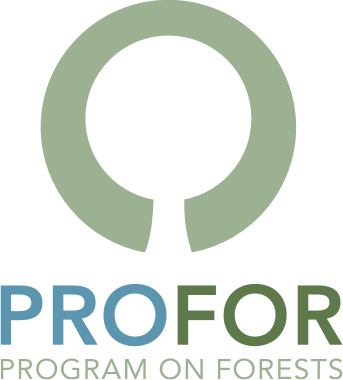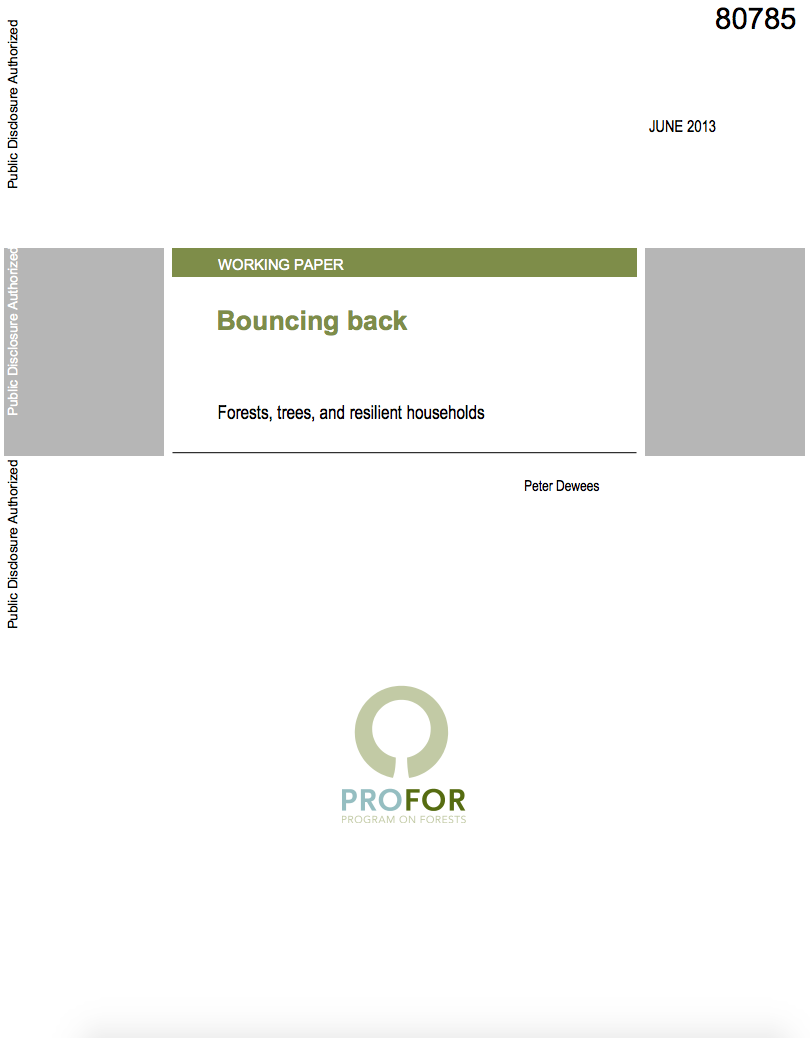Focal point
Location
Well-managed forests have the potential to reduce poverty, spur economic development and contribute to a healthy local and global environment. The Program on Forests (PROFOR) was created in 1997 to support in-depth analysis, innovative processes and knowledge-sharing and dialogue, in the belief that sound forest policy can lead to better outcomes on issues ranging from livelihoods and financing, to illegal logging, biodiversity and climate change. Since 2002, the program has been managed by a core team based at the World Bank, with support from multiple donors. PROFOR encourages a big-picture approach to forest conservation and management in developing countries, with a particular focus on four themes:
- Livelihoods
- Across Sectors
- Financing Sustainable Forest Management
- Governance
Members:
Resources
Displaying 6 - 9 of 9Bouncing Back : Forests, Trees, and Resilient Households
This paper examines some of the concepts
surrounding the idea that forests and trees can contribute
to making households more resilient to food insecurity. The
paper begins with a discussion of the widely accepted
definitions of food security, and the implications for our
understanding of the role of forests and trees in
contributing to food security. Authors discuss the origins
of the idea of resilience, adaptability, and transformation
Identifying and Working with Beneficiaries When Rights Are Unclear : Insights for REDD+ Initiatives
Expert statements indicate that annually
approximately 20 billion dollars will be needed to prevent
90 percent deforestation in tropical countries. Development
practitioners are eager to see the benefits from REDD plus
initiatives shared with local partners. Equally important to
understanding how local partners might benefit are questions
such as, who should derive benefits from REDD plus
initiatives, and how to ensure these initiatives reach the
Forests, Fragility and Conflict : Overview and Case Studies
This book provides a synthesis of key
themes and current knowledge about the links among forests,
armed conflict, poverty, and various aspects of state
fragility. The main themes addressed are: how predatory,
incapable, or absent states are fragile in different ways,
and their diverse relationships to forests and conflict; the
mechanisms by which forests facilitate or prolong conflict,
including financial flows from logging to state and
Benefit Sharing in Practice : Insights for REDD+ Initiatives
Reducing emissions from deforestation
and forest degradation and enhancing carbon stocks (REDD+)
has raised the profile of benefit sharing in the forest
sector. Sharing benefits, however, is not a new concept.
Previous work on benefit sharing (associated with
intellectual property, forest and agriculture concessions,
mining, and so forth) has focused on clarifying the concept
and examining how benefit sharing could feed into broader



